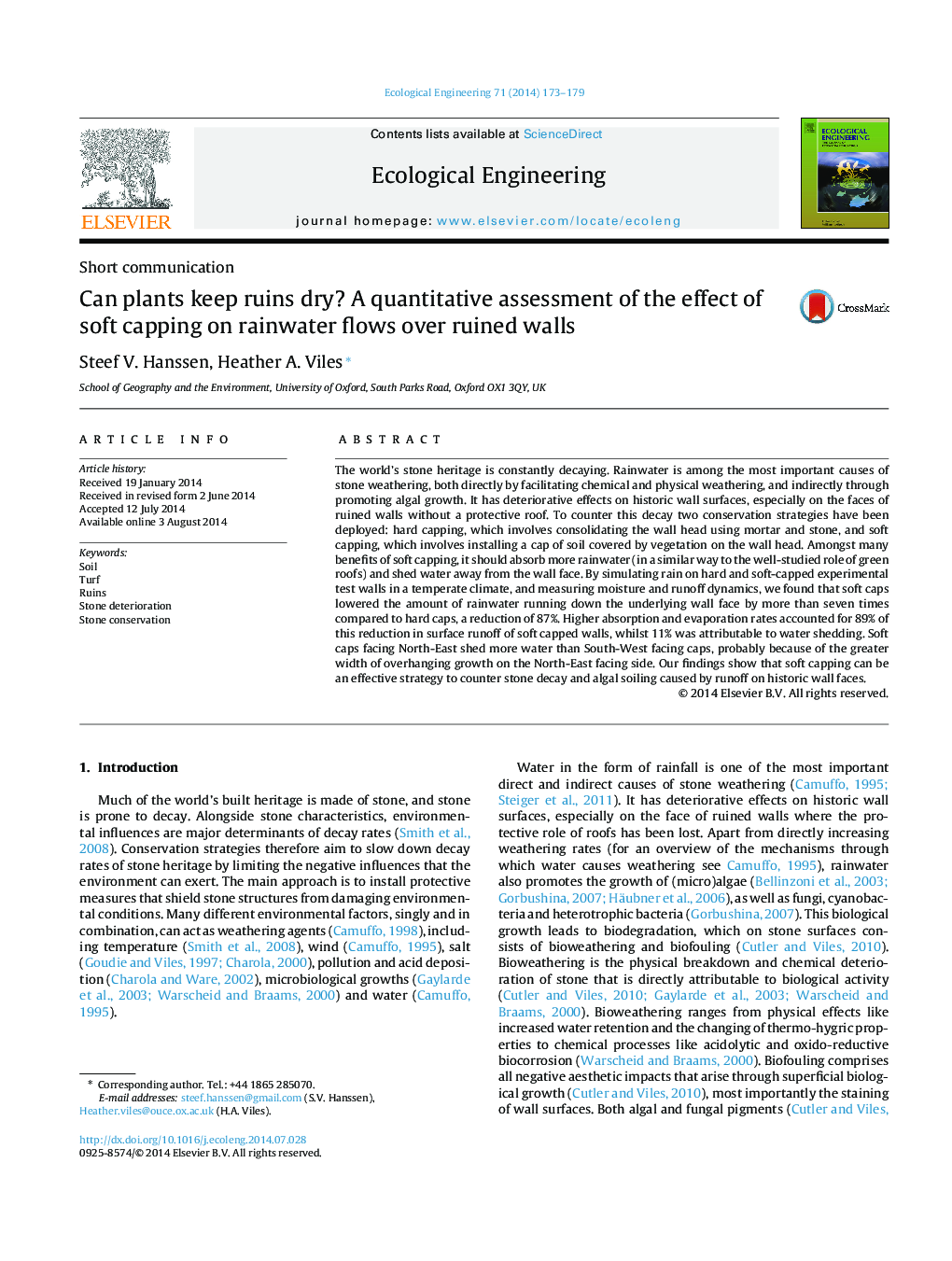| Article ID | Journal | Published Year | Pages | File Type |
|---|---|---|---|---|
| 4389152 | Ecological Engineering | 2014 | 7 Pages |
Abstract
The world's stone heritage is constantly decaying. Rainwater is among the most important causes of stone weathering, both directly by facilitating chemical and physical weathering, and indirectly through promoting algal growth. It has deteriorative effects on historic wall surfaces, especially on the faces of ruined walls without a protective roof. To counter this decay two conservation strategies have been deployed: hard capping, which involves consolidating the wall head using mortar and stone, and soft capping, which involves installing a cap of soil covered by vegetation on the wall head. Amongst many benefits of soft capping, it should absorb more rainwater (in a similar way to the well-studied role of green roofs) and shed water away from the wall face. By simulating rain on hard and soft-capped experimental test walls in a temperate climate, and measuring moisture and runoff dynamics, we found that soft caps lowered the amount of rainwater running down the underlying wall face by more than seven times compared to hard caps, a reduction of 87%. Higher absorption and evaporation rates accounted for 89% of this reduction in surface runoff of soft capped walls, whilst 11% was attributable to water shedding. Soft caps facing North-East shed more water than South-West facing caps, probably because of the greater width of overhanging growth on the North-East facing side. Our findings show that soft capping can be an effective strategy to counter stone decay and algal soiling caused by runoff on historic wall faces.
Related Topics
Life Sciences
Agricultural and Biological Sciences
Ecology, Evolution, Behavior and Systematics
Authors
Steef V. Hanssen, Heather A. Viles,
